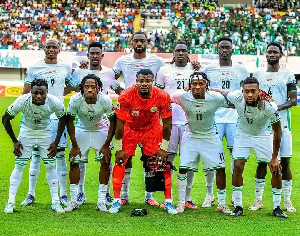Business News of Monday, 20 October 2025
Source: Oluwole Dada, Contributor
FORGIVENESS: An essential leadership virtue
Many years ago, I knew a manager who kept a mental ledger. He documented in his mind, every mistake, every missed deadline, and every misstep by his team members. He will always threaten his team members with appraisal outcome. It was always bizarre seeing him making reference to errors and events that occurred months before. The team members were always walking on eggshells around him. This inevitably led to low morale amongst the team members. That manager thought he was maintaining standards. What he was doing was destroying trust and suffocating what every leader is meant to cultivate and that is human potential.
Here is an uncomfortable truth that some leaders struggle to accept: if you will succeed in your role, forgiveness is not optional. It is essential. Your team members are human beings, just like you. They will make mistakes. They will disappoint you. They will sometimes fall short of expectations. And when they do, your response will define not just your relationship with them, but the entire atmosphere you create.
Take the example of Indra Nooyi, former CEO of PepsiCo, who believed in creating an inclusive environment where team members felt valued and respected, regardless of past mistakes. Her ability to maintain a forward-looking perspective without dwelling on past errors enabled her to build a cohesive and motivated team that drove PepsiCo's global success.
In the year 2000, Howard Schultz of Starbucks stepped away from daily operations, and during his absence, the company made a series of strategic missteps that nearly destroyed the brand he had built. When he returned as CEO in 2008, he could have spent his time assigning blame, punishing those responsible, and making examples of people. Instead, he chose a different path. He acknowledged that mistakes had been made by many people, including himself, and focused the entire organization on moving forward together. He closed stores for retraining. He rebuilt the culture. He forgave, but he also created systems to prevent the same mistakes from happening again.
Holding grudges exhausts you. It is an emotional labor that depletes energy and clouds your judgment. Every time you interact with the person you have not forgiven, you carry that weight. It affects your tone, your body language, your decisions about them. You think you are punishing them, but you are also punishing yourself. Nelson Mandela spent 27 years in prison, subjected to brutal treatment and injustice. When he emerged, he could have led with bitterness and vengeance. Instead, he chose forgiveness and reconciliation. If a man like Mandela could choose forgiveness, surely, we can extend it to a colleague who missed a deadline or made a poor decision.
Forgiveness is not avoiding consequences for bad behavior. You are permitted to exercise official sanctions. When someone violates policy, misses critical deadlines without valid reason, or demonstrates patterns of poor performance, you have a responsibility to address it. Accountability is not the opposite of forgiveness but the companion to it. What must not happen is using one event to continue tormenting your team members long after the incident has passed. There is a world of difference between imposing a consequence and harboring a grudge. Leaders must strike a delicate balance between empathy and discipline. While it’s important to forgive, it’s equally important to ensure that lessons are learned and that systems are put in place to prevent recurrence.
One of the vices that prevents forgiveness is bitterness. It is a slow poison. It does not kill you quickly; it seeps into your judgment, your decisions, and your relationships. When you hold grudges against those who have stepped on your toes, and people will surely step on them, you create an environment where fear replaces trust. Always remember empathy in your dealings. This is not soft leadership; this is smart leadership. Empathy means understanding that the person who made the mistake is probably already beating themselves up about it. Empathy means recognizing that people’s personal lives affect their professional performance and that the misstep could be as a result of a personal matter of concern. Empathy means asking yourself: “If I had made this mistake, how would I want to be treated?”
Finally, forgiveness is not just a virtue. It is a leadership imperative. It’s about recognizing that your team members are human, that mistakes are inevitable, and that growth is possible. By forgiving, you create an environment where people feel valued, supported, and empowered to do their best work. So, the next time a team member stumbles, remember forgiveness is not just about them but also about you. It’s about the kind of leader you choose to be. Let go of the past, embrace empathy, and lead with a heart that forgives. That is the hallmark of true leadership. By activating forgiveness, leaders not only build stronger, more cohesive teams but also pave the way for a more innovative and dynamic organization.
Oluwole Dada is the General Manager at SecureID Limited, Africa’s largest smart card manufacturing plant in Lagos, Nigeria.












